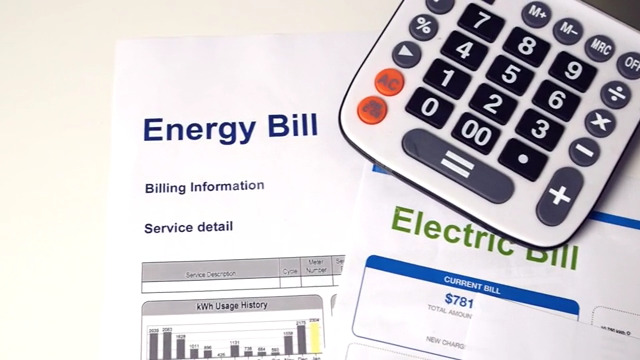Here are some commercial energy tools
What is an Electricity Calculator?
An Electricity Calculator, also known as an Energy Calculator or Power Calculator, is a tool used to estimate or calculate various aspects related to electricity consumption. Its purpose is to help individuals or businesses understand and evaluate their energy usage and costs. Here are some functionalities and calculations that an Electricity Calculator can perform:
Energy Consumption Calculation
An Electricity Calculator can estimate the amount of energy consumed by an electrical device or system over a specific period. By inputting parameters such as power rating (in watts or kilowatts) and usage time, the calculator can determine the total energy consumption in kilowatt-hours (kWh).
Electricity Cost Estimation
Based on the energy consumption calculation, an Electricity Calculator can also estimate the cost of electricity consumed. By inputting the energy rate or tariff (in dollars per kWh), the calculator can multiply the energy consumption by the cost per unit to provide an estimated cost.
Electricity Load Estimation
In some cases, an Electricity Calculator can help determine the electrical load or power demand of a specific device or an entire electrical system. By inputting the device's power rating or the power ratings of multiple devices, the calculator can calculate the total load in kilowatts (kW).
Energy Efficiency Assessment
By comparing the energy consumption of different devices or systems, an Electricity Calculator can assist in assessing their energy efficiency. It allows users to make informed decisions regarding energy-saving options or evaluate the potential savings by upgrading to more efficient devices.
Electricity Carbon Footprint Calculation
Some advanced Electricity Calculators may also incorporate carbon footprint calculations. By considering the energy consumption and the carbon emissions associated with the electricity generation, the calculator can estimate the carbon dioxide (CO2) emissions resulting from the energy usage.
Today Electricity Calculator's provide users with valuable insights into their energy consumption, costs, and efficiency. It can help individuals and businesses make informed decisions about energy usage, identify areas for improvement and promote sustainable energy practices.
What is a Natural Gas Calculator?
A Natural Gas Calculator, also known as a Gas Consumption Calculator or Gas Cost Calculator, is a tool used to estimate or calculate various aspects related to natural gas usage. Its purpose is to help individuals or businesses understand and evaluate their natural gas consumption and costs. Here are some functionalities and calculations that a Natural Gas Calculator can perform:
Natural Gas Consumption Calculation
A Natural Gas Calculator can estimate the amount of natural gas consumed over a specific period. By inputting parameters such as gas usage rate (in cubic meters or cubic feet per hour) and usage time, the calculator can determine the total gas consumption in cubic meters (m³) or cubic feet (ft³).
Natural Gas Cost Estimation
Based on the gas consumption calculation, a Natural Gas Calculator can also estimate the cost of natural gas consumed. By inputting the gas rate or tariff (in dollars per cubic meter or cubic foot), the calculator can multiply the gas consumption by the cost per unit to provide an estimated cost.
Natural Gas Content Conversion
Natural gas is commonly measured in different units, such as cubic meters (m³), cubic feet (ft³), or British thermal units (BTUs). A Natural Gas Calculator may provide conversion functionalities to convert gas consumption or energy content between these units.
Natural Gas Efficiency Assessment
Some Natural Gas Calculators may include features to assess the efficiency of gas appliances or heating systems. By inputting relevant parameters such as appliance efficiency ratings or heating system characteristics, the calculator can provide insights into the energy efficiency and potential savings.
Natural Gas Carbon Footprint Calculation
Similar to an Electricity Calculator, advanced Natural Gas Calculators may incorporate carbon footprint calculations. By considering the natural gas consumption and the carbon emissions associated with its combustion, the calculator can estimate the carbon dioxide (CO2) emissions resulting from the gas usage.
Today a Natural Gas Calculator allows users to gain insights into their natural gas consumption, costs, efficiency, and environmental impact. It aids in making informed decisions about energy usage, identifying opportunities for energy savings, and promoting sustainable practices in natural gas utilization.
What is a load factor calculator?
A Load Factor Calculator is a tool used to determine the load factor of an electrical system or device. The load factor represents the ratio of the average power demand to the maximum power demand during a specific period. It is a measure of how effectively and efficiently the available power capacity is utilized. Here's how a Load Factor Calculator typically works and what it helps assess:
Calculation of Average Power Demand
The Load Factor Calculator collects data on power demand over a specific period, usually in kilowatts (kW). This data can be obtained from energy meter readings or power monitoring systems. The calculator calculates the average power demand by summing up the power values over the period and dividing it by the total duration.
Calculation of Maximum Power Demand
The Load Factor Calculator identifies the highest power demand value recorded during the specified period. This represents the peak load or maximum power requirement.
Calculation of Load Factor
Using the average power demand and the maximum power demand, the Load Factor Calculator determines the load factor by dividing the average power demand by the maximum power demand. The load factor is typically expressed as a decimal or a percentage.
Assessment of Load Factor
The load factor provides insights into how efficiently the power capacity is being utilized. A higher load factor indicates a more consistent and efficient use of power, while a lower load factor suggests underutilization or fluctuating power demands.
Energy Cost Analysis
Load factor plays a significant role in determining electricity costs. Utilities may have tariffs or pricing structures based on load factor, where lower load factors can result in higher charges. By analyzing the load factor, businesses can assess their electricity costs and identify opportunities for load optimization and cost savings.
Energy Efficiency Evaluation
The load factor is an important factor in evaluating energy efficiency. Higher load factors imply better energy utilization and efficiency, while lower load factors may indicate inefficiencies or wastage. Analyzing the load factor helps identify areas for improvement and energy-saving measures.
By using a Load Factor Calculator, businesses can gain insights into their power consumption patterns, evaluate the efficiency of their electrical systems, and optimize their energy usage. It enables them to make informed decisions regarding load management, capacity planning, and energy cost optimization.
What Are Energy Market Alerts?
These alerts provide information and updates on the daily market conditions and prices in the energy industry. They may include details about electricity or natural gas prices, market trends, supply and demand dynamics, regulatory changes, or any other relevant information that can impact energy markets. These updates help businesses or individuals stay informed about market fluctuations and make informed decisions regarding energy procurement or trading activities.
Energy Peak Grid Day Alerts
These alerts notify consumers or businesses about upcoming peak grid days. A peak grid day refers to a period when the demand for electricity is expected to be exceptionally high, potentially reaching or exceeding the maximum capacity of the electrical grid. These alerts are typically issued by utility companies or grid operators to encourage consumers to reduce their electricity consumption during peak hours or participate in demand response programs. By reducing electricity usage during peak periods, consumers can help balance the grid and avoid potential strain or disruptions.
Renewal Notice
A renewal notice is a notification sent to customers or subscribers to inform them that a contract, subscription, or agreement is nearing its expiration and needs to be renewed. In the context of energy services or contracts, a renewal notice may be sent by energy providers or suppliers to inform customers about the upcoming expiration of their current energy supply agreement. The notice typically includes details about renewal options, pricing, terms, and instructions for taking necessary action to continue the energy service.
Capacity Tags
Capacity tags, also known as capacity certificates or capacity credits, are mechanisms used in electricity markets to ensure sufficient power generation capacity is available to meet demand. They are typically issued by grid operators or regulatory authorities and allocated to electricity generators based on their capacity to produce electricity. Capacity tags represent the right to generate and supply a specific amount of electricity over a defined period. These tags can be bought, sold, or traded among market participants to ensure reliability and adequacy of electricity supply.
These alerts and notices play a vital role in keeping consumers, businesses, and market participants informed about market conditions, critical events, contract renewals, and regulatory requirements related to energy markets and electricity supply. They help stakeholders make informed decisions, manage their energy usage, and navigate the dynamic energy landscape.

